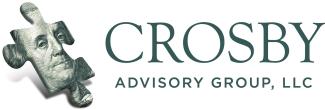
Market Update for Today - July 19th 2021
Friends and Clients,
The economy is growing stronger which was reflected by the strong performance of investment markets through the first half of 2021. At every point in time, there have always been potential short-term problems on the horizon. My favorite comment I get from people who do not invest is, “The market can’t get much higher.” It can, and long term, I believe it will. In between, we will see sell-offs and downturns and there will be those who say, “See, that’s why I don’t invest”. Great investors have no problem with looking foolish in the short term. Even in a growing economy, there will be short-term threats. Will inflation continue to rise? Will we get past the bottlenecks in our supply chains? Will there be another virus outbreak? We don’t know the answers to those questions, that is why we diversify and stick to our investment strategy in good times and bad. The miracle of compound growth: decades of interest growing upon interest, growth upon growth, is the reward for courage in believing the future is a better place. I will meet you there!
Just a note: Many of you are holders of the iShares US Medical Device ETF (IHI). This has been one of the all-stars in our models for quite some time, providing positive returns each year since 2012. IHI is doing a share split. A share split means you will have the same value of IHI but more shares. Share splits are a positive sign as iShares believes IHI will continue to climb higher in share price in the coming years.
Check out our Newsletter for May 19, 2021! We are always here if you need us. We value your trust. -Nate
Insurance Hack: Layup period built into insurance rate.
Each Week Macy and Julie put out short videos designed to help you tailor your insurance coverage to protect your assets for less. In a recent video, they discussed how certain motorcycle insurance policies can be written with the winter layup period built into them. This allows you to ensure your bike for less money and time, without worrying if you have coverage for that late fall or early spring rides. You can watch their video here:
What To Do with Short Term Cash
With savings rates near all-time lows, many clients and business owners have asked us for solutions for short-term cash. Short-term cash is money that is not being used for day-to-day lifestyle or operation expenses but potentially could be needed if an emergency or opportunity arises. Our Short-Term Income strategy has become increasingly popular for investors as a solution to grow money conservatively while still maintaining access to the full account value at all times. The Short Term Income strategy has produced positive returns every year since 2007. This is significant because that includes both the great recession and the covid-19 shutdown.
Derek and Nate recently had a discussion on the challenges and potential solutions for short-term cash. You can listen and watch it here:
Dynamic Growth: Manipulate the Environment to Your Advantage
We are in the midst of writing our second book which will be titled, "Dynamic Growth." It will build and expand on the principles we implement for clients on a daily basis that help individuals, families and businesses build and protect wealth. Believe it or not, there are components of financial planning that must be adjusted as investment, economic, tax, and estate planning landscapes change. For example, in the '90s, financial planners were taught that a typical retirement portfolio should be constructed of 60% stocks and 40% bonds. It was almost as simple as a set, rebalance annually, and forget. That model worked for a period of time until it didn't. Over the past two decades, interest rates fell to near zero and the dividend yields of many publicly traded companies were reduced. May investors discovered that these pressures made it difficult to survive solely on the income produced by their investment accounts and 2008 proved that a portfolio of 60% stocks still can exhibit quite a bit of volatility.
In hindsight, it is now clear that an oversimplified portfolio of 60% stocks and 40% bonds faces many additional challenges. Today, the prosperity and fortunes of economies in individual countries are more closely linked. While in the past you may be able to shield your portfolio from problems abroad by investing only in US companies, those lines have been blurred as the companies we invest in operate on a truly global scale. For instance, 32% of Amazon's online retail sales in the fourth quarter of 2020 occurred outside of the United States. The trend of increased international sales for publicly traded companies will likely continue. The first half of 2021 reminded investors that inflation can be a real problem if a portfolio is not equipped to take advantage of escalating prices of goods. The absence of real estate in a modern portfolio would have been an oversight as residential and commercial real estate have continued to climb higher. Today, investors can invest in asset classes that weren't even around two decades ago. The modern investment portfolio has had to adjust to account for an increasingly complex economy. The modern accumulation process has had to change as well. In low-interest environments, saving your way to prosperity can be compared to swimming upstream. The financial environments around us are every change. We believe this is not a problem, it is an opportunity because we have a common trait that no other species on Earth does quite as well: we are masters at adaptation.
We not only have the ability to adapt, but we also have the ability to alter the environment in which we live. If you spun a globe, closed your eyes, and pointed to a landmass, chances are you would find humans living there. If the land is dry, humans dig irrigation. If it is swampy, we create drainage. We can harness the power of fossil fuels, gas, atoms, water, wind, and the sun. While kings of centuries past sweat in their castles in the summer and shivered in the winter, the average American home can be a comfortable temperature with a push of a button. We manipulate our environment to our advantage. Yet not all of us carry this trait over to our financial lives.
Instead of manipulating their financial environment to prosper in a variety of conditions, their fortunes rise and fall with the unpredictability of life. Retirement accounts are raided to pay for a broken-down car or a major home repair. Savings rates are sacrificed at the expense of debt. Penalties and unnecessary taxes are paid to the government in exchange for temporary relief from constrained cash flow months. Living paycheck to paycheck, their plan will work only if everything goes according to plan, and life seldom goes exactly according to plan. Like a camper who goes into the wilderness with no plans for shelter, they find hope and pray is not a successful long-term strategy.
In our upcoming series on planning, we will lay down a game plan for manipulating our financial lives to enhance success. We will outline principles that can allow financial growth to occur in the mess and unpredictability of life and not just on paper. Look for our Dynamic Growth series in the coming weeks and months. I encourage you to join us on the journey!

